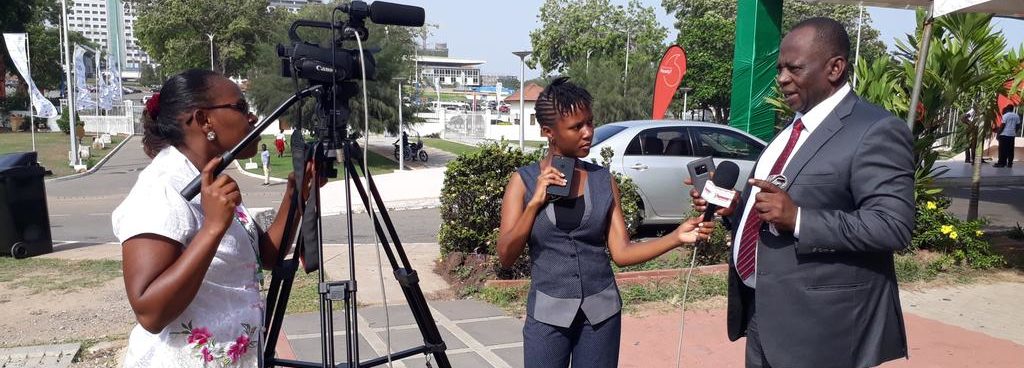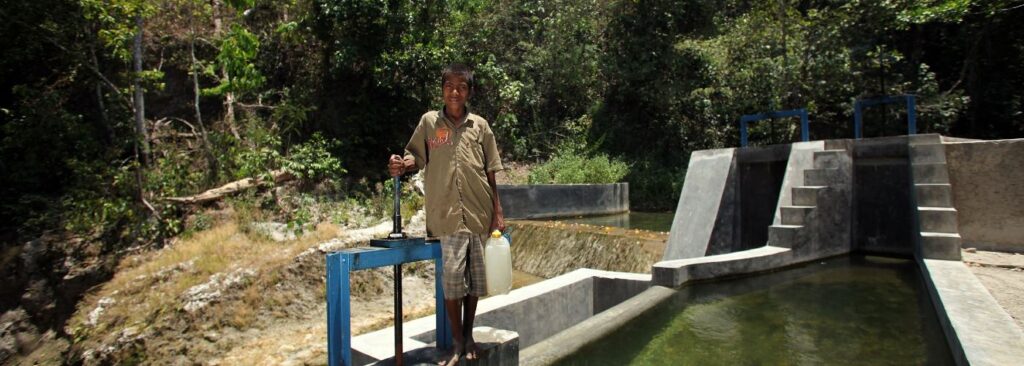To enhance reporting about climate and energy, the Hivos East Africa Hub has invited six journalists to the Africa Climate Week, held in Ghana from 19-22 March. The six journalists, previously trained by Hivos, were asked to develop stories and report on the Africa Climate Week. After a capacity development session on Tuesday 19th March, the journalists attended the three main days of the conference. Their stories from the event have already been aired on radio and television, and run in various newspapers in both Kenya and Tanzania.
Maimuna Kabatesi (@munakab), advocacy officer Green & Inclusive Energy program in Kenya, introduces the journalist and together with them reflect on their work reporting about climate change and the energy transition and Africa Climate Week. In concluding the week, she says “it has been invaluable for the journalists to have access to such an important forum.” She adds
Not only have they been able to expand their understanding of renewable energy issues, they have been able to share information and learnings from a critical regional forum with their audiences back in their countries.
Introducing the journalists
Over today and tomorrow, I want to share some of the thoughts our journalists have on the work they do in #renewableenergy #AfricaClimateWeek
— maimuna kabatesi (@munakab) March 21, 2019
Haika (@haikakim)is journalist with Mwananchi, the leading Swahili Newspaper. Haika enjoys writing about and sparking discussions on renewable energy. This way, she says, she can highlight the benefits of renewable energy on the basis of environmental conservation and can promote behavioral change in Tanzania.
During Africa Climate Week she managed to secure an interview with ECREE Director Mahama Kappiah.
ECOWAS Centre for Renewable Energy and Energy Efficiency (ECREEE)Executive Director,Mahama Kappiah said 80 percent of Africans rely on traditional cooking methods that are hazardous to both health and environment.
Gabriel sees it as his responsibility to inform and educate the community. From the initial Hivos training, he has now positioned himself as a renewable energy journalist. It gives him joy when he finds increased awareness, and use of renewable energy for cooking and lighting in communities due to his work.
Jenifer (@nellygilla) says African countries need to prioritize renewable energy as one of the ways to mitigate climate change. “At the same time we also increase energy access for communities thereby improving the economic and environmental health of our countries.”
As Africans we must ensure that every household has access to clean energy..Ms Alice Akinyi Kaudia
Dennis is excited to share the potential of renewable energy for reducing environmental damage with his readers. He has also learnt about the opportunities renewable energy offers for job creation and income generation through manufacturing, and productive uses of energy.
On clean cooking, Rose says “One way to reduce the effects of climate change, is to show the deforestation, and highlight renewable energy options. Clean cooking options like briquettes or biogas will benefit both the environment and peoples’ health”
How Hivos collaborates with media
From the start, the Green & Inclusive Energy program has sought collaboration with the media. On the one hand to raise public awareness about energy issues, on the other hand to assemble public opinion to put pressure on governments and private sector to invest in climate action and the energy transition. The collaboration has taken different forms in the countries we work in. From breakfast meetings to organizing field trips and trainings to improve skills and knowledge about reporting on renewable energy issues. Find out more about our work with journalists here.


